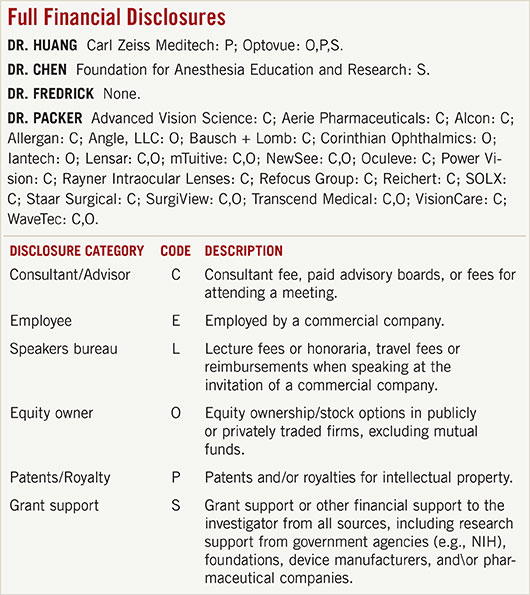Download PDF
For years, the Academy and other organizations such as the Royal College of Ophthalmologists have been advising doctors to stop ordering routine laboratory testing before cataract surgery. Yet evidence-based guidelines have failed to alter individual physician behavior, according to a recent study headed by Catherine L. Chen, MD, MPH, an anesthesiologist at the University of California, San Francisco.1
Dr. Chen’s study shows that over half of the patients in a random cohort of more than 440,000 Medicare beneficiaries undergoing cataract surgery in 2011 had 1 or more routine preoperative test in the month before surgery—even though routine testing has not been shown to improve outcomes.
Other findings from the preop month include:
- Nearly 800,000 tests were ordered at a cost of $16.1 million.
- 13% of patients had 1 preop test; 13% had 5 or more.
- In the preop month, testing costs were $4.8 million (42%) higher than the mean monthly costs in the previous 11 months.
- $28.3 million was spent on 308,397 office visits; this was $12.4 million more than the mean monthly costs in the prior 11 months.
Surprise finding. The researchers had hypothesized that the patients undergoing routine testing were older and sicker. But, in fact, a healthier subset of patients accounted for much of the testing. Some 90,000 patients who had not been sick enough to require any testing in the prior year had an average of 3 to 4 routine tests in the month before surgery. Dr. Chen said that there was nothing to account for the additional tests except for the patients’ upcoming cataract surgery.
Physician driven. Digging deeper, she found that the individual cataract surgeon was the strongest predictor of the amount of testing. For example, among those who operated on 5 or more patients in 2011, 36% ordered tests for at least three-fourths of their patients, while 8% did so for all their patients.
Resistance to change. Some doctors keep ordering tests because “that’s the way things have always been done,” Dr. Chen said. Other factors may include concern for the safety of a mostly older patient population, assumptions about other physicians’ expectations, and medicolegal fears, she said.
Rx for excessive testing. “Clearly, it is not enough just to disseminate guidelines,” she said. She proposed that “high-testing” physicians be given feedback about their behavior so they can make appropriate changes. She hopes that this could avert a potential Medicare crackdown on reimbursement for preop testing and thus “avoid adding another layer of bureaucracy for the circumstance in which a patient truly does need a lab test or EKG prior to surgery because of a new symptom.”
—Miriam Karmel
___________________________
1 Chen CL et al. N Engl J Med. 2015;372(16):1530-1538.
___________________________
Relevant financial disclosures—Dr. Chen: Foundation for Anesthesia Education and Research: S.
For full disclosures and disclosure key, see below.

More from this month's News in Review